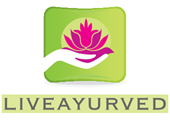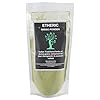Home Remedies with Henna
Henna (Lawsonia inermis) is a traditional Ayurvedic herb widely valued for its cooling, healing, and therapeutic properties. For centuries, henna has been used not only as a natural hair dye but also as a powerful home remedy for various health concerns.
It also helps promote hair growth, prevents premature greying, supports liver health, soothes skin problems, and acts as a natural blood purifier. Henna leaves, bark, flowers, and oil are all used in Ayurvedic remedies to improve overall wellness, making it a versatile herb for both beauty and health.
Boiling henna leaves with mustard oil and applying it to the scalp promotes hair growth and strengthens hair naturally.
The bark of henna is used in Ayurveda to help manage jaundice and reduce liver enlargement.
Henna oil for skin is effective in treating eczema, scabies, fungal infections, and minor burns.
For burning feet relief, fresh henna leaves mixed with vinegar can be applied as a bandage on the soles.
A paste made with henna flowers and vinegar helps cure headaches caused by the sun's heat.
Ground henna leaves with water are used to treat prickly heat and soothe skin irritation.
For baldness treatment, boil 250 grams of mustard oil with 50 to 60 grams of henna leaves, strain, and massage the oil regularly on the scalp.
To support liver health, consume 30-50 grams of henna decoction or 1-5 decigrams of henna powder.
Mix henna powder with ghee to make small balls and take them with water to help manage dysentery.
Applying ground henna leaves on joints helps reduce rheumatic and arthritic pain.
Using henna oil for hair prevents premature greying.
Boiling coconut oil with henna leaves strengthens hair, reduces hair fall, and promotes shine.
Mix 2-3 tablespoons of neutral, colorless henna powder with 4-5 ounces of warm apple cider vinegar. This natural remedy works as an effective antiseptic, bactericide, and fungicide, helping to protect the skin and scalp from infections.
For scalp health, mix 60 to 95 ml of henna oil with jojoba, calendula, and carrot seed oil and apply to the hair.
Mix ½ cup of boiled spring water with ½ teaspoon of neutral, colorless henna powder to form a smooth paste. Apply this natural mixture to your nails to nourish and strengthen them, working as an effective nail conditioner for healthy nail care.
Useful Tips for Using Henna
Always use henna from a genuine and trusted source, as low-quality products may be adulterated with other leaves and reduce their natural benefits.
Prefer green henna leaves or powder made by shade drying for best results.
Apply henna during the daytime in winter, since its cooling potency may trigger a runny nose or cold if applied at night.
First-time users should perform a patch test for henna allergy before applying.
Children with G6PD deficiency must avoid henna application, as it may harm red blood cells.
|

